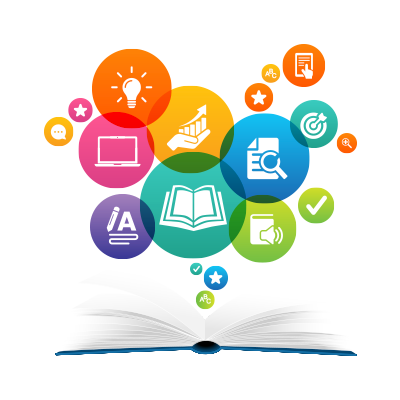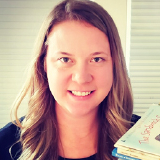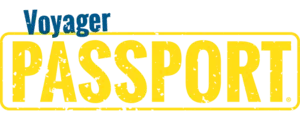
What is the Science of Reading?
The science of reading is an evidence-based approach to teaching and learning that draws upon decades of research in cognitive science, linguistics, and psychology. It aims to understand how the brain processes written language and identifies the most effective strategies for teaching reading skills.


Why is the Science of
Reading Important?
Understanding the science of reading is crucial because it provides educators with insight into the most effective instructional methods. By aligning teaching practices with research-based strategies, we can better support learners in developing strong reading skills, comprehension, and language proficiency.
What are the 6 Key Concepts of the
Science of Reading?
Phonemic Awareness
Phonics
Fluency
Vocabulary
Comprehension
Language Development
Phonemic Awareness:
Phonemic awareness is a crucial skill that forms the basis for developing strong reading and spelling abilities. It is essential for understanding the alphabetic principle and facilitating effective phonics instruction.
Phonics:
Phonics is the systematic and evidence-based reading instruction of letter-sound correspondences, enabling readers to decode and encode words. Understanding the relationship between letters and sounds ultimately allows learners to develop into proficient readers.
Fluency:
Fluency is a skill that involves reading words accurately and quickly as well as incorporating expression and intonation to convey meaning. Fluent readers smoothly navigate written material because of their ability to accurately comprehend and engage with it.
Vocabulary:
Vocabulary is defined as the comprehension of word meanings and the skill to proficiently use a variety of words to articulate thoughts. It is also fundamental to effective communication. Developing a robust vocabulary enhances expressive abilities and contributes significantly to reading comprehension and overall cognitive growth.
Comprehension:
Comprehension is the dynamic process of actively understanding and deriving meaning from text. Effective comprehension instruction plays a crucial role in this process by guiding students to become independent, strategic, and metacognitive readers.
Language Development:
Language development is the development of strong oral language skills. It is a significant support to reading acquisition which includes vocabulary, syntax, and grammar.
FAQ: Science of Reading
What does the Science of Reading focus on?
How does the Science of Reading benefit struggling learners?
How does the Science of Reading address the needs of diverse learners?
What are some effective strategies for supporting emergent readers?
What instructional practices are associated with the Science of Reading?
Is there a recommended sequence for teaching fundamental reading skills?
It’s recommended that teachers start with phonemic awareness, progress to phonics, and then incorporate fluency, vocabulary, comprehension, and language development sequentially, building upon each concept.
What are the stages of reading development?
How are the 6 key concepts of the Science of Reading used in Instruction?

How Do I Begin Implementing the Science of Reading in
My Classroom?
At Voyager Sopris Learning®, we provide resources and guidance about implementing the science of reading in educational settings. Our expert team and authors have curated a range of tools, strategies, and instructional materials that align with evidence-based practices, empowering educators in their professional development so they can deliver high-quality reading instruction through all grade levels.
Get Started on Your Science of Reading Journey
We offer opportunities for educators seeking to deepen their understanding of the science of reading with free webinars, blog posts, podcasts, and other content that include practical insight and strategies for effectively teaching reading skills based on the latest research.
Become a part of our EDVIEW360 community, where educators, researchers, and authors come together to share insight, best practices, and success stories. You will learn why the science behind learning to read is important for student success and how you can implement it in your school or district.
Connect with us through our blog and social media channels to stay updated on the latest advancements in the field and engage in meaningful discussions.
Add your email here to sign up for EDVIEW360 blogs, webinars, and podcasts. We'll send you an email when new posts and episodes are published.

Sound Walls in Your Classroom: The Pathway to Reading Fluency
Literacy and sound wall expert Dr. Mary Dahlgren will help you build a thorough understanding of how to use a sound wall, implementation tips, and more—everything you need to know and why.

Phonemic Awareness and Letter/Sound Associations: Practices for Teachers
Join Dr. Pam Kastner for this instructional presentation exploring the research supporting phonological and phonemic awareness and the theoretical frameworks that underpin it.

Building a Reading-Writing Connection in the Classroom
Teacher and science of reading advocate Hannah Irion-Frake explores the reading-writing connection and shares ways you can appropriately increase the amount of writing students do in your classroom.


Why the ‘Science of Reading’ Needs the ‘The Science of Teaching’—A Conversation Between 2 Literacy Leaders
The science of reading refers to a vast body of multidisciplinary research providing a rationale for what must be taught to ensure almost all students can learn to read. But is this movement enough to develop more effective literacy instruction? Join us as our guests discuss why it may not be, unless teaching practices themselves receive more attention.

How Handwriting Supports the Science of Reading
After taking a backseat in the education world for many years, handwriting is back. While assistive technology can help students with writing problems, it does not remove the importance of teaching explicit handwriting.

The Science of Reading: A Defining Movement
Join Dr. Maria Murray as she explains why the science of reading is now regarded as a defining movement and addresses the need to protect the integrity of its findings so the promise of successful reading outcomes for our students can be realized.
Unlock the Power of Literacy With the Science of Reading
At Voyager Sopris Learning, we believe every learner deserves the opportunity to become a confident and proficient reader. By embracing the science of reading, we can transform the way we teach and learn, equipping striving readers with essential literacy skills that empower them for a lifetime.

Ready to dive into the science of reading with aligned intervention solutions?
Backed by decades of literary research, our intervention and assessment products are all built and based on the science of reading. Explore our evidence-based solutions to intervene and provide essential diagnostic instruction for K–12 students who struggle with reading and literacy.


